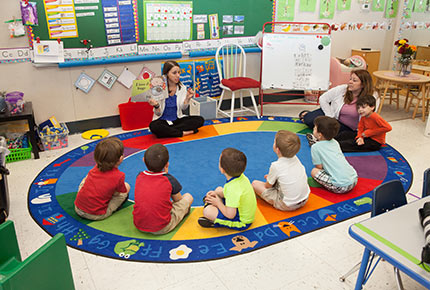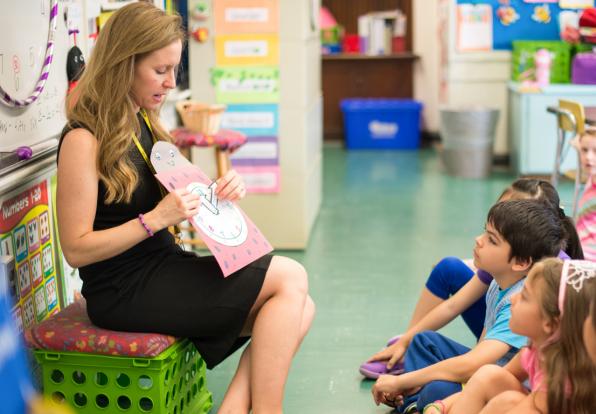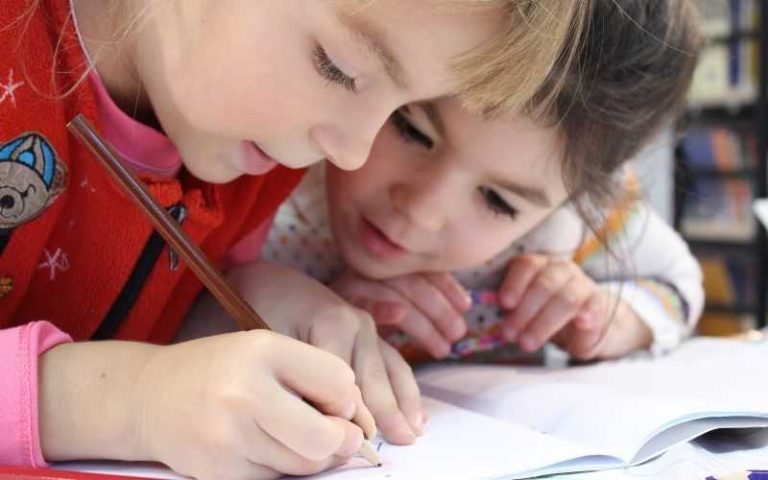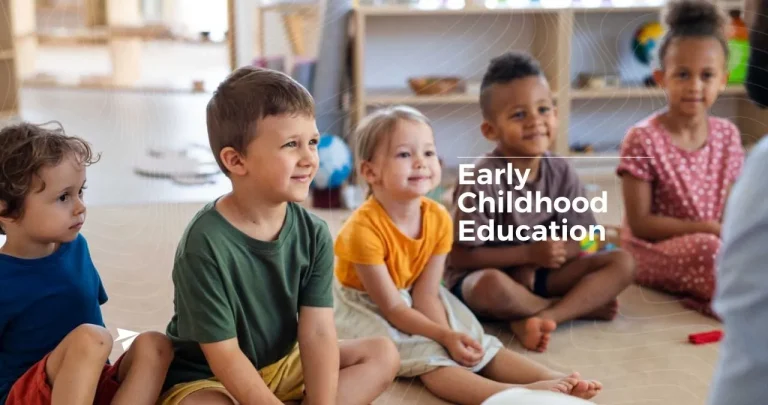Is Early Childhood Education a Major : Key to Future Success

Yes, Early Childhood Education is a major. It focuses on the development of young children.
Early Childhood Education is a crucial field that concentrates on the cognitive, social, and emotional development of young children. This major equips students with the necessary skills and knowledge to effectively work with young children in various educational settings. The coursework typically covers child development, early childhood curriculum, and strategies for working with diverse populations.
Graduates in this field may pursue careers as preschool teachers, childcare administrators, or early intervention specialists. With a growing demand for qualified early childhood educators, pursuing a major in Early Childhood Education can lead to rewarding and impactful career opportunities. This field plays a pivotal role in shaping the future generation and promoting the importance of early childhood learning.

Credit: ecoleglobale101.medium.com
Benefits Of Early Childhood Education
Early childhood education is a major that offers a wide array of benefits for children. These benefits extend to cognitive, social, and emotional development, setting a strong foundation for lifelong learning and success.
Cognitive Development
Early childhood education plays a crucial role in fostering cognitive development in young children. Through interactive activities and play-based learning, children are able to enhance their critical thinking skills, problem-solving abilities, and language development. This type of stimulating environment helps children to build a strong foundation for future academic success.
Social Development
In an early childhood education setting, children have the opportunity to develop crucial social skills through interaction with peers and adults. They learn how to cooperate, share, and communicate effectively, laying the groundwork for healthy social relationships in the future.
Emotional Development
Early childhood education also plays a significant role in nurturing emotional development. Children learn to identify and express their emotions, develop empathy for others, and build resilience. This sets the stage for emotional intelligence and self-regulation in later stages of life.
Impact Of Early Childhood Education On Future Success
Early childhood education plays a crucial role in shaping future success by laying a strong foundation for lifelong learning and development. Research indicates that investing in quality early education programs can significantly impact a child’s cognitive and social-emotional skills, setting them up for academic achievement and overall well-being.
Impact of Early Childhood Education on Future Success Early childhood education plays a crucial role in shaping a child’s future success. The experiences and learning opportunities during these formative years can have a lasting impact on a child’s academic, career, and personal development.Academic Achievement
Early childhood education sets the foundation for academic achievement. It instills a love for learning, builds essential skills such as literacy and numeracy, and fosters critical thinking abilities. Research shows that children who participate in high-quality early education programs are more likely to perform better in school and have higher graduation rates.Career Success
The influence of early childhood education extends to career success. By nurturing social and emotional development, these programs equip children with essential skills like teamwork, communication, and problem-solving, which are invaluable in the professional world. Studies have indicated that individuals who received quality early education are more likely to secure stable employment and have higher earning potential.Personal Development
Early childhood education contributes significantly to personal development. It cultivates self-confidence, resilience, and a positive attitude towards learning. Additionally, it fosters social skills, empathy, and adaptability, which are essential for healthy relationships and overall well-being. These qualities form a strong foundation for future success in various aspects of life. In conclusion, early childhood education has a profound impact on a child’s future success, influencing academic achievement, career advancement, and personal development. Investing in quality early education programs is crucial for nurturing well-rounded individuals who can thrive in their academic, professional, and personal pursuits.Challenges In Early Childhood Education
Early childhood education faces several challenges that impact the quality and accessibility of education for young children. These challenges must be addressed to ensure that all children have the opportunity to receive a high-quality early education that sets them up for future success.
Access To Quality Education
Access to quality education is a significant challenge in early childhood education. Many children, particularly those from low-income families or rural areas, do not have access to high-quality early learning programs. This lack of access can lead to educational disparities and hinder children’s readiness for school.
Funding And Resources
Funding and resources are crucial for providing high-quality early childhood education. However, many programs struggle to secure adequate funding and resources, leading to limitations in the quality of education and support services offered to young children and their families.
Teacher Training And Retention
Teacher training and retention are essential for ensuring that early childhood educators are equipped with the skills and knowledge needed to support young children’s development. However, the field often faces challenges in retaining qualified and experienced teachers, which can impact the consistency and quality of education provided to children.
Early Childhood Education Programs
Early Childhood Education Programs play a crucial role in shaping the foundation of a child’s learning and development. These programs provide a supportive and stimulating environment for young children, fostering their cognitive, social, and emotional growth. Let’s delve into the various types of Early Childhood Education Programs.
Preschool Programs
Preschool programs are designed to prepare children for formal schooling. These programs focus on providing a structured learning environment that emphasizes early literacy, numeracy, and social skills development. Through activities such as storytelling, arts and crafts, and group play, preschool programs nurture children’s curiosity and creativity, laying the groundwork for future academic success.
Child Care Centers
Child care centers offer a safe and nurturing environment for young children while their parents are at work or attending to other responsibilities. In addition to providing basic care, these centers often incorporate educational activities and play-based learning to support children’s overall development. Child care centers play a vital role in supporting working families by ensuring that children receive quality care and early education.
Home-based Care
Home-based care refers to early childhood education and care provided within a home setting. This type of program offers a more intimate and personalized approach to early learning, as children receive individualized attention from a caregiver. Home-based care can provide a nurturing and familiar environment for young children, fostering a sense of security and comfort as they engage in various learning activities.
Investment In Early Childhood Education
Early Childhood Education plays a crucial role in shaping a child’s future success. Investment in this phase yields long-term benefits, fostering cognitive development and social skills. Setting a strong foundation in early education is pivotal for a child’s overall growth and learning abilities.
Investment in early childhood education is an investment in the future. Early childhood education lays the foundation for a child’s academic and personal success. It is a crucial phase of development that shapes a child’s cognitive, social, and emotional skills. Early childhood education is not just about preparing children for school, but it is about building the foundation for lifelong learning and success. In this blog post, we will discuss the importance of investment in early childhood education and the different types of investment that can make a difference in a child’s life.Government Investment
Government investment in early childhood education has a significant impact on the quality of education that children receive. Governments invest in early childhood education in different ways, such as funding for pre-school programs, training for early childhood educators, and research on early childhood development. The investment in early childhood education by the government ensures that every child has access to quality education, regardless of their socioeconomic status. This investment is crucial for building a strong foundation for future generations.Private Investment
Private investment in early childhood education plays a vital role in supplementing government investment. Private investment can come from various sources, such as philanthropic organizations, corporations, and individuals. Private investment in early childhood education can fund research, teacher training, and the development of innovative programs. Private investment in early childhood education can also provide scholarships or grants to families who cannot afford the cost of early childhood education. This investment can help in creating a more robust and diverse early childhood education system.Community Investment
Community investment in early childhood education is also essential in ensuring that every child has access to quality education. Community investment can come from various sources, such as community organizations, religious organizations, and non-profit organizations. Community investment can fund programs that provide early childhood education to underserved communities. It can also support programs that provide parent education and support services. This investment can help in creating a more equitable and accessible early childhood education system. In conclusion, investment in early childhood education is crucial for building a strong foundation for future generations. Government investment, private investment, and community investment all have a significant impact on the quality of education that children receive. By investing in early childhood education, we can ensure that every child has access to quality education and a brighter future.
Credit: www.rasmussen.edu

Credit: lesley.edu
Frequently Asked Questions
What Degree Is Best For Early Childhood Education?
A bachelor’s degree in early childhood education is best for pursuing a career in this field.
Is Early Childhood Education Major Hard?
Yes, early childhood education major can be challenging due to diverse coursework and practical experience. However, passion and dedication can make the journey rewarding.
Which Course Is Best For Early Childhood Education?
The best course for early childhood education is a Bachelor’s in Early Childhood Education. It provides comprehensive training and knowledge.
Is An Early Childhood Education Degree Worth It?
Yes, an early childhood education degree is worth it for those passionate about shaping young minds and making a positive impact on children’s development. The degree opens doors to rewarding careers in childcare, preschools, and schools, providing opportunities for personal growth and professional advancement.
Conclusion
Early childhood education is undeniably a major factor in shaping a child’s future. Investing in quality early learning programs can yield lifelong benefits. By prioritizing early education, we pave the way for a brighter tomorrow. Let’s continue to support and advocate for the importance of early childhood education.
Lorem Ipsum is simply dummy text of the printing and typesetting industry. Lorem Ipsum has been the industry’s standard dummy text ever since the 1500s, when an unknown printer took a galley of type and scrambled it to make a type specimen book.





